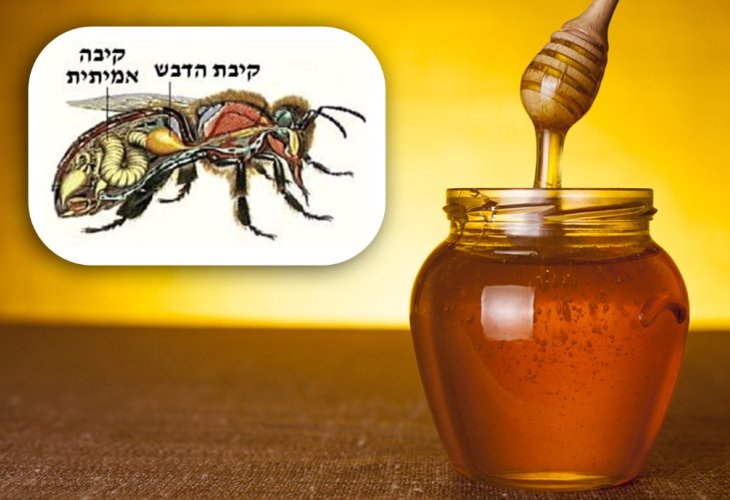Wonders of Creation
Why Is Bee Honey Kosher? Torah Wisdom and Modern Science Explained
Explore the surprising explanation of why honey remains pure, revealing the harmony between faith and scientific discovery

The honey season is here! Citrus blossom honey comes from flowers that bloom in early spring, while eucalyptus honey comes from late spring blossoms. Interestingly, since eucalyptus groves are usually not sprayed, eucalyptus honey, which is naturally darker in color, is often considered organic.
“Not From Their Honey, Not From Their Sting”
Sometimes, when people want to express their desire to avoid any contact with certain authorities, they use the phrase: “Not from their honey, and not from their sting.” This expression, which appears in Pirkei Avot (Ethics of the Fathers 2:3), reflects the idea that rulers only draw close to people for their own benefit, by appearing friendly when it serves them, but abandoning others in times of trouble.
With bees, we want the honey, but not the sting.
According to Jewish law, “Anything that comes from an impure animal is impure, and anything that comes from a pure animal is pure.” For example, milk from kosher animals like sheep is permitted, while milk from non-kosher animals, like a lioness, is forbidden. How is it possible then that bee honey has always been considered completely kosher, passed down through Jewish tradition for thousands of years — even though the bee itself is a non-kosher insect?
One might assume that this is because honey comes from flower nectar, which is itself pure, but this explanation does not hold. Nectar undergoes a chemical change inside the bee’s body through its enzymes, transforming into something entirely new. If that’s the case, how can honey remain kosher?
The Scientific Discovery: Bees Have Two Stomachs
With the development of modern science, the answer became clear. Researchers discovered that bees actually have two stomachs: The true stomach, used for digestion like in other animals, and the honey stomach, where nectar is stored and transformed into honey with the help of enzymes.
Although enzymes from the bee act on the nectar, by the end of the process, those enzymes disappear completely and do not remain in the honey. Just as the nectar began in purity, the finished product remains pure and untouched by any part of the bee’s body. This explains why honey is kosher.
You may wonder, how did the people of Israel know this fact thousands of years ago? Did Moses already have a biochemistry lab over 3,300 years ago?
Moses received his knowledge directly from the Creator of the world, who revealed the laws of Torah at Sinai. As Pirkei Avot (1:1) teaches: “Moses received the Torah at Sinai and transmitted it to Joshua, and Joshua to the elders…”
Torah Knowledge: Fact or Explanation?
Was this knowledge in Jewish tradition merely a fact passed down, or was it accompanied by an explanation?
The answer is found in the writings of Rabbi Abraham Ibn Ezra, nearly 900 years ago. He was asked this very question and explained that bee honey is permitted because the foreign substances introduced by the bee into the nectar are completely burned up and eliminated in the process. What remains is pure honey, with no trace of the bee’s body.
From ancient times, Jewish tradition declared bee honey kosher, long before modern science discovered the bee’s two stomachs. Torah knowledge revealed truths about nature that scientists only later confirmed. This reflects the depth of Israel’s wisdom: a combination of practical law, spiritual insight, and profound understanding of creation itself.

